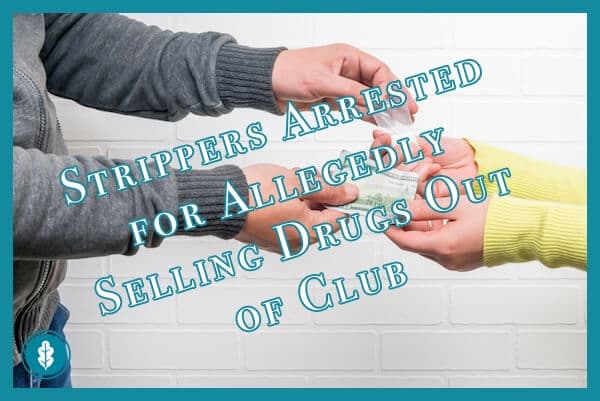Strippers Arrested for Allegedly Selling Drugs Out of Club

They took them by surprise. In “Operation Neon Lights,” dozens of police officers exploded into the Booby Trap and LaBare strip club complex in Miami at the end of last month, arresting nine dancers and other employees who they allegedly caught selling drugs to undercover law enforcement for over a year. According to reports, the bust interrupted bachelorette parties and caught customers off guard. In fact, it was reported that some of the female customers demanded that the police officers get up on stage. Customers were allowed to leave, but officers seized 20 grams of cocaine and guns while making the arrests.
Earlier investigations into the Booby Trap that would evolve into Operation Neon Lights began at the end of 2016. A judge signed off on 10 arrest warrants and a search warrant based on surveillance and undercover purchases of cocaine, marijuana, and other drugs.
Drugs Are Everywhere
Whether you are at an all-male strip club like LaBare in Miami or waiting to find out if you are going to get picked for jury duty in Tampa, drugs are everywhere. No matter how hard you work to avoid the usual suspects (e.g., bars or parties) where the focus is always going to be on drug and alcohol use, the fact is that there is the potential to stumble across criminal activity and substance use and abuse almost anywhere you go.
While the average person can take this in stride and move on with their day, these surprise situations can be devastating for people in recovery, especially in early recovery. Triggers for relapse can come from anywhere at any time, and it is imperative to have a plan for unplanned situations.
Are you prepared to handle the unexpected in recovery?
Creating a Plan for Unplanned Triggers
It is easy to sit down with your therapist or case manager and devise a step-by-step plan for how to deal with potentially stressful or triggering events that you know are on the horizon. Family event coming up? You can decide in advance when you will arrive, whom you will bring with you, and the ways you can gracefully exit the situation if you begin to feel overwhelmed. The same goes for a concert you would like to attend where it is likely that drugs will be present or any event that you actively choose to attend despite known risks.
But what about the unexpected exposure to drug use? How can you plan for something when you don’t know what the situation is going to be like until it happens?
Here are a few tips to help you create a plan for upsetting situations that seem to come out of nowhere:
- Have people you can call. When in doubt about how to handle finding drugs or paraphernalia in an old bag in your closet, have a list of numbers that will connect you with people who have agreed in advance to be your backup and support in a crisis. These may be concerned friends or supportive family members, or they may be people you met in drug addiction treatment or at a 12-step meeting.
- Have a safe place to go. If you feel like you need to remove yourself from the situation immediately, do not hesitate to do so. It is a good idea to have a few safe places around town you can easily access (e.g., a friend’s house, a meeting, a sober café, or an outdoor spot) where you can take a breath and process.
- Have a quick, simple process to help you work through the surprise. You cannot control what kind of situations will pop up in recovery but you can control how you respond. One way to ensure you don’t go with whatever emotional response comes up is to have a mini-process in your emotional toolkit to help you take a step back, process what is happening, and choose how to respond. For example, you might stop what you’re doing, count to 10, and then assess the situation before responding, or you might excuse yourself, take five full deep breaths, and then choose what to do next—whatever works best for you.
- Follow up with your therapist. Getting out of a triggering situation is key but once you have removed yourself, it is important to follow up with your therapist in order to go over the feelings that were triggered and how you will manage them in the coming weeks. Relapse is still a risk for as long as the situation stays with you emotionally or mentally, so it is important to figure out your next steps with a therapeutic professional who can provide support.
How do you handle it when you are unexpectedly faced with substances or another triggering situation? What is your game plan to stay sober in recovery?